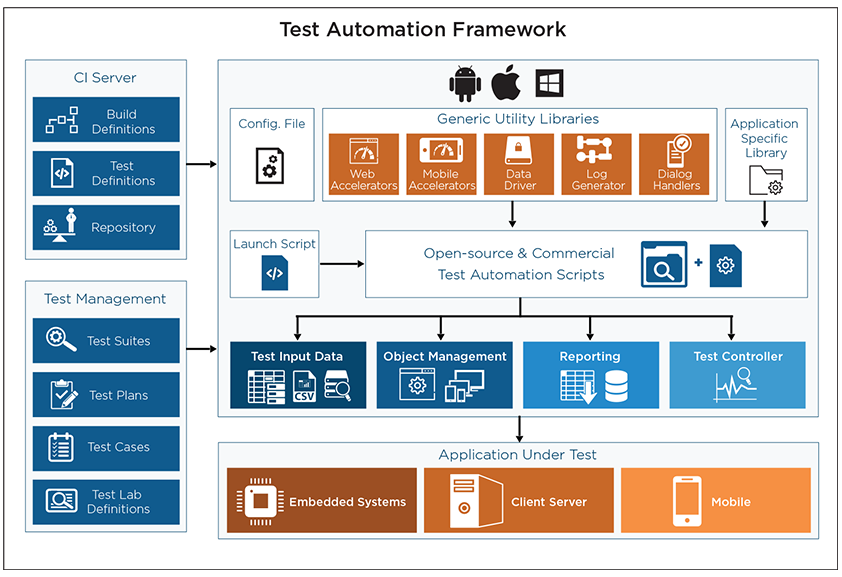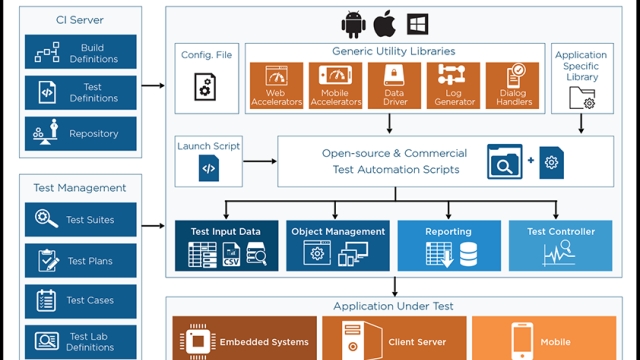
In today’s fast-paced software development landscape, the demand for efficient and effective testing solutions has never been higher. Enter Rapid Test Automation, a game-changing approach that leverages advanced Test Automation Tools to streamline the testing process and enhance overall product quality. By incorporating automated testing mechanisms into software development cycles, organizations can not only accelerate their time-to-market but also ensure robustness and reliability across their applications.
The key to successful Rapid Test Automation lies in selecting the right Test Automation Tools that are tailored to specific project requirements and objectives. These tools enable testers to carry out a wide range of tests, from unit testing to end-to-end integration testing, with unprecedented speed and accuracy. Leveraging the power of automation not only optimizes testing efforts but also frees up valuable resources for more strategic and creative tasks within the development lifecycle.
Rapid Test Automation
Benefits of Rapid Test Automation
Rapid Test Automation offers significant advantages to software development teams looking to enhance their testing processes. By leveraging automation tools, testers can achieve faster test execution, leading to quicker feedback on the quality of the application being developed.
Additionally, Rapid Test Automation helps increase test coverage by allowing for the creation and execution of a larger number of tests in a shorter amount of time. This comprehensive testing approach ensures that various aspects of the software are thoroughly examined, helping to catch defects early in the development cycle.
Moreover, the efficiency gained through Rapid Test Automation enables teams to allocate resources more effectively. By automating repetitive and time-consuming test cases, testers can focus on more challenging and high-impact testing scenarios, ultimately improving the overall quality of the software product.
Comparison of Test Automation Tools
When comparing test automation tools, it is important to consider factors such as ease of use, flexibility, and support for various testing frameworks. One popular tool in the market is Selenium, known for its versatility across different browsers and platforms. It also offers a robust set of features for automating web application testing.
Another tool to consider is Appium, particularly suitable for mobile app testing. Appium’s cross-platform capabilities and support for both Android and iOS make it a valuable choice for organizations looking to automate their mobile testing processes efficiently. Additionally, its integration with popular programming languages like Java, Python, and Ruby provides developers with flexibility in test script creation.
For teams focused on continuous integration and continuous delivery, Jenkins is a widely used automation tool due to its seamless integration with various testing frameworks and version control systems. Jenkins facilitates the automation of repetitive tasks, enabling teams to achieve faster feedback loops and quicker deployment cycles. Its extensive plugin ecosystem further enhances its capabilities in automating software testing workflows.
Best Practices for Implementing Rapid Test Automation
When implementing rapid test automation, it is crucial to start by carefully selecting the right test automation tools for your specific needs. Consider factors such as the technology stack of your application, the complexity of test scenarios, and the scalability requirements of your testing process.
In addition, creating a solid test automation strategy is key to success in rapid test automation implementation. Define clear objectives, establish testing priorities, and integrate automated testing into your overall development process. Regularly review and update your automation strategy to ensure alignment with evolving project requirements.
Lastly, invest in continuous training and upskilling for your team members involved in test automation. Providing proper training on the selected automation tools, programming languages, and testing best practices will enhance the efficiency and effectiveness of your automated testing efforts. Encourage collaboration and knowledge-sharing within your team to foster a culture of continuous improvement in test automation practices.
